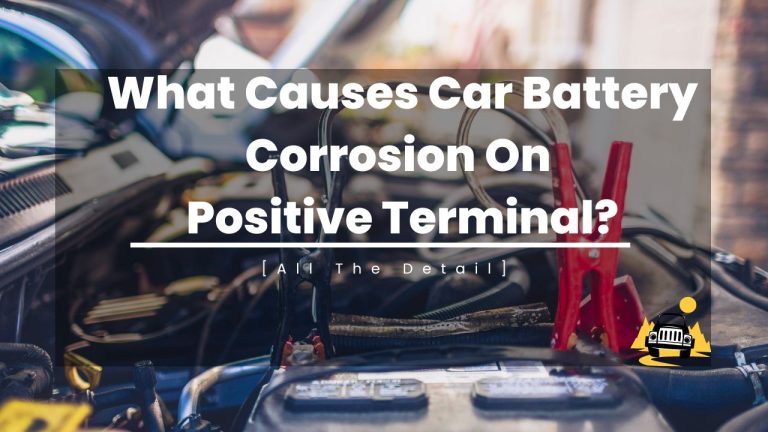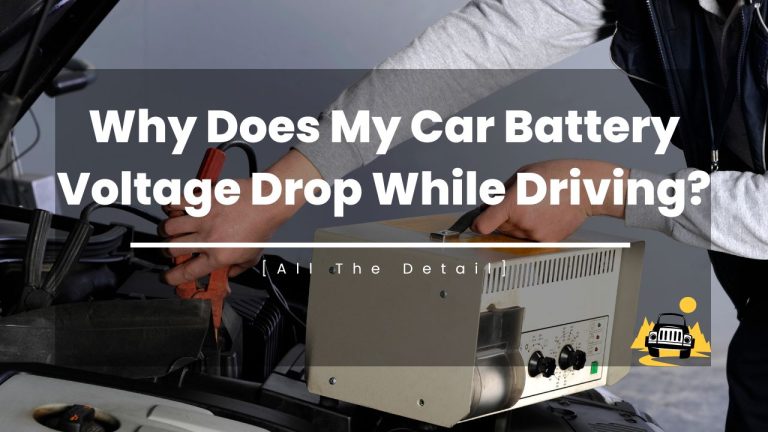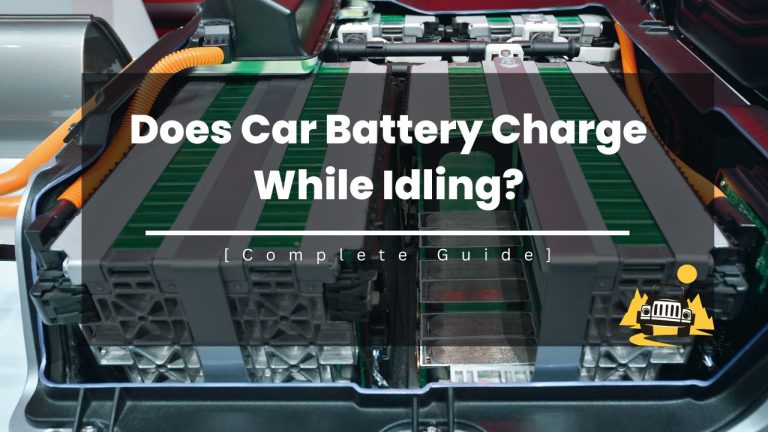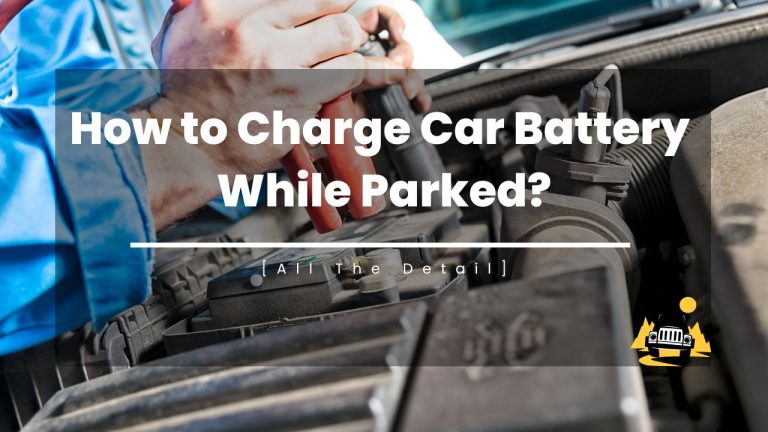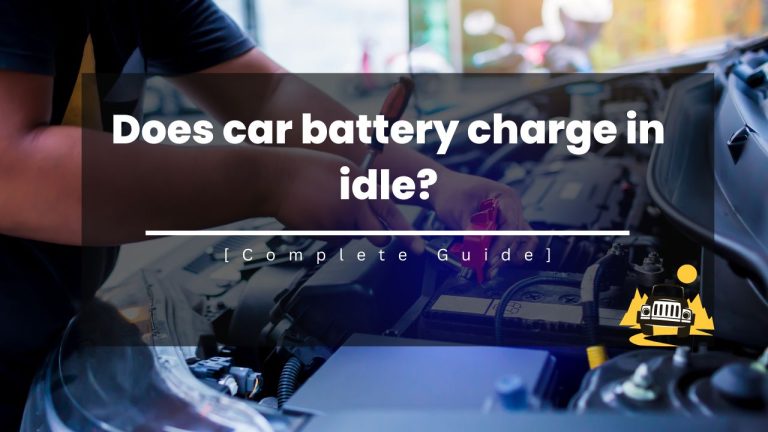Why Do Car Batteries Corrode?
Car batteries run most of the utilities of your car these days because they run the AC, radio, headlights, and ignition system. The usual lifespan of a car battery is about 2-6 years but still, it doesn’t last that long.
Sometimes the battery seems to be in good condition but what happens is corrosion occurs on the battery terminals. So why do car batteries corrode? Well, car batteries corrode because of a number of different reasons and we’ll be explaining most of those major reasons in this article below.
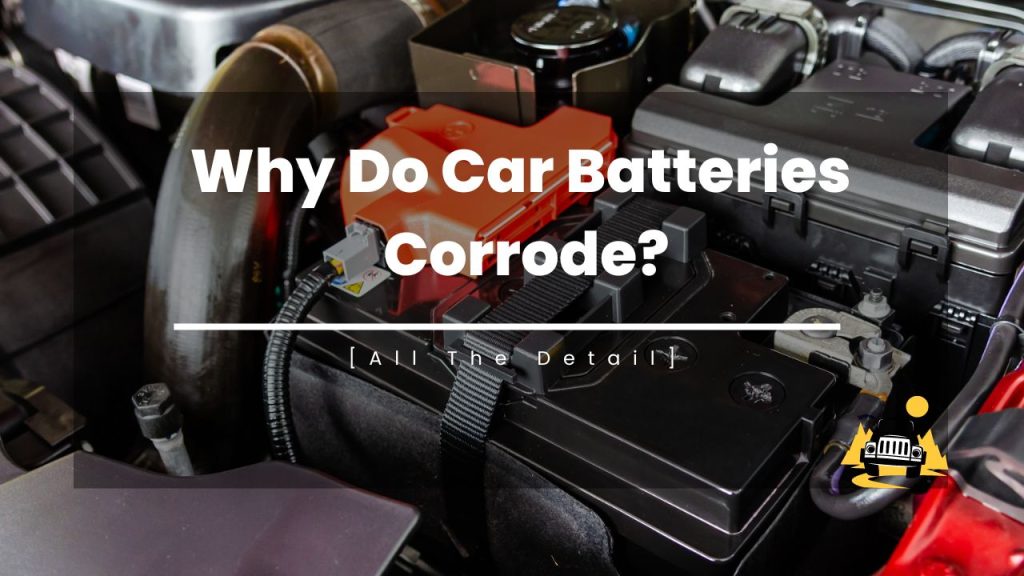
Why Do Car Batteries Corrode?
Batteries are essentially a combination of the electrolytic and chemical reaction taking place that generates power.
There are different battery parts like the cells, battery fluid, covering, lithium or carbon, and charging power. So when the batteries corrode, it basically happens because of the leakage of the electrolytes from within the battery or the hydrogen leakage.
Additionally, not just these reasons, but there can be an overcharging issue as well by the alternator. That means if the alternator keeps charging the battery even more than it should, it also creates the same problem.
And charging for a long period plays a major role in this. When you look at the copper connectors, they also most of the time get caught by the chemical reaction with the battery. We hope now you know the basic reasons why do car batteries corrode.
Below are some major reasons for the battery corrosion in detail.
Hydrogen gas leakage
So the battery works in a simple way in that it has battery fluid in it that eventually becomes acid. The acid then becomes the electric current and meanwhile there is hydrogen gas in the battery helping in the chemical reaction.
But sometimes this hydrogen gas, by using any other substance, finds its way out of the battery and spreads into the atmosphere. When the gas leaks out from the battery, the reaction with the atmosphere and the battery terminal causes it to appear like corrosion.
Another helpful protip is that you can even figure out the reason for corrosion by looking at your battery terminal on which it is formed. Like if the corrosion has occurred on the negative terminal of the battery, then it is because of undercharging.
Hence, you may need to drive a little more for an hour or so to let your battery charge fully on a daily or weekly basis. But if the corrosion is on the positive-sided terminal of the battery, then it is because of overcharging. That happens just because you’ve driven too fast and gone too far without using your electrical utilities of the car.
Electrolyte leakage
This usually happens in lead-acid batteries. When you accidentally damage the battery or the battery becomes old enough that the acid/electrolyte inside the battery leaks out. If that happens then the battery terminal will catch corrosion immediately.
The electrolyte is formed by the electric current passing through the battery water and reacting with the hydrogen gas. And if the battery is overfilled with battery water, the electrolytes are likely to get leaked out. This way the corrosion occurrence is definite and you will have to clean it properly with cleaning chemicals and stuff.
Copper clamps chemically react on the terminals
The electrical industry accepts copper as the best electrical conductor out of all. But still, it is just a conductor and can catch a chemical reaction while getting into contact with the current.
So when copper is attached to the terminals and the electric current passes through this conductor, copper sulfate forms on the terminal’s surface. And that copper sulfate is basically the corrosion occurred after a chemical reaction with copper.
The corrosion because of the copper sulfate will look bluish with the naked eye. This is not a good conductor of electricity and that’s why the car doesn’t start quickly when this situation is faced.
Overcharging
Overcharging, even though is not majorly involved in the battery terminals corroding, can cause it for sure. It happens when the alternator starts overcharging because then the corrosion can be seen on the battery terminals.
A good way to keep an eye on the battery terminals corroding because of overcharging is that you check with the multimeter while you rev your engine. Your battery should be charging at least above 14.5 volts.
Sometimes people become skeptical about their car batteries because they don’t want to take risks or they don’t like risking their journeys. So they keep charging their car batteries just because of that and then the battery will automatically get overcharged.
Overfilling the battery
There are two types of car batteries; refillable and non-refillable. Those that are non-refillable do not require to be refilled and neither do they need to be checked for overfilling. But a refillable battery cannot be left overfilled as all the battery fluid can leak out and stack on the battery terminal causing corrosion.
When this happens, the battery stops charging or discharging because the current cannot pass through such a poor conduction path.
How to fix corrosion from the battery terminal?
As we figured out different and firm reasons behind having the battery terminals corroded, now we dig deeper into the topic and try to fix it. Fixing the corrosion from the battery terminals is very easy there are multiple ways to do it. Just follow along and you will get to know all of them.
Baking soda – water solution
Cleaning the battery terminals with baking soda and normal drinking water solution is one of the most effective solutions. It only requires you to grab a toothbrush, a mixture of baking soda and drinking water, and some clean water. To clean the terminals with this method, turn off all the ignition of the car and remove the terminal connectors from it.
Now you see that copper sulfate is stacked on the terminals. Remove it with your brush and then pour some baking soda and water mixture and then again start cleaning. Do the deep cleaning and when you’re done with it, pour some clean water onto it and then let it dry.
After it is dry, apply some wheel bearing grease to it.
Using soda to clean the terminals
If you don’t have the baking soda around you, then go to your fridge. Any normal carbonated soft drink that we have in our homes has a somewhat carbonic factor in it.
And for this exact reason, you have to pour some soda on the terminals and it will make the residue on the terminals easy to remove. Just use a soft sponge and rub the residue off the terminals.
Although this is a great solution as well use it when there’s no baking soda around, or use that preferably.
Conclusion
Now that you know why do car batteries corrode? You have to make sure that you keep an eye on your car battery and don’t let it corrode at all. There’re multiple solutions for a corroded battery but similarly, you can take just a little care of the terminals and your battery will never corrode. Also, the battery’s overall performance and lifespan increase when you adapt to these good time and money-saving habits.
We hope that you liked this article, if you did then please make sure to share it with others as well. Also, if you have any questions or suggestions, do ask in the comment section below so that we can get back to you as soon as possible. Another important notice here, keep visiting this website regularly for more updates.
FAQs – Why do car batteries corrode?
Why does my car battery keep getting corrosion on it?
Well, there may be multiple reasons for that to happen to us the major cause of this to be happening is the electrolytes. Sometimes, the hydrogen gas from inside the battery gets leaked out and condensed on the battery.
And most of the time when the battery is overfilled, the electrolytes get leaked out of the battery and then corrode the battery terminals.
Does car battery corrosion mean the battery is bad?
No, if you see corrosion on the battery terminal that doesn’t necessarily mean that your battery is bad. But yes you can still avoid that to be happening by removing the corrosion from the battery on your own.
Also, it is a good idea if you keep an eye on the battery corrosion to stop it permanently and use the best practices for extended battery lifespan. The corrosion on the battery doesn’t let it function properly and that’s why sometimes your car doesn’t start.
How do you stop car battery corrosion?
Making it stop corroding is the most important question of this article and you can do that easily. Just cut the power by turning the entire ignition off of the car and removing the connectors from the battery terminals.
First, use some anti-corrosion washers to remove any corrosion if there is already present. Then apply the basic dielectric grease on the terminals that will stop the terminals from corroding. The time it takes for the terminals to corrode next time is the time that grease lasts.

